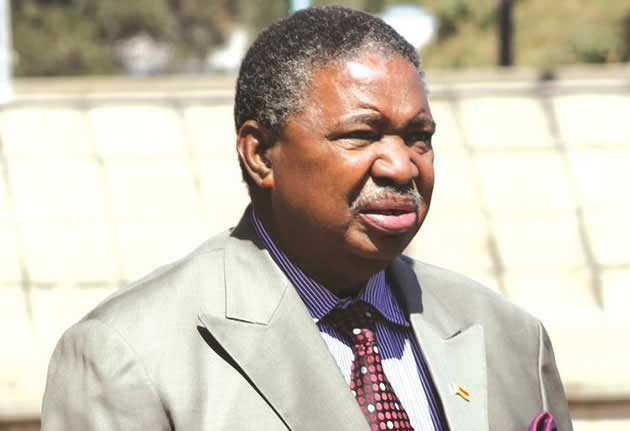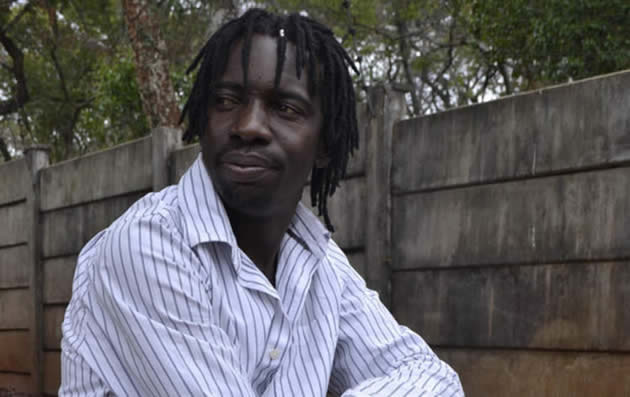Church, state and climate change

Stanely Mushava Features Correspondent
Zimbabwe had a respite from searing temperatures this week as rains fell in parts of the country concurrently with the presidential call to prayer. The cropping season is in jeopardy as the country has come under the debilitating trail of climate change — no easy test for a principally agro-based economy.
Vice President Phelekezela Mphoko, on behalf of President Mugabe who is currently out of the country, on Saturday made an impassioned appeal for Christian denominations across the country to pray for rain.
“In face of this possible drought, it is important that we turn to the Almighty God, the creator and sustainer of life to heal our land. I, therefore, request that we all dedicate time in our different gatherings to pray from Saturday January 9 to Sunday January 17, 2016,” the Vice President said.
“When you go out to the rural areas, it is so dry with no meaningful agricultural activity. This can plunge the country into severe drought,” he warned during a Family of God church service last week.
Two days into the prayer week, rains set in as an early incentive and ushered in positive vibrations for farmers whose backs were against the wall, with denominations across the country honouring the call to intercession.
The presidential appeal to avert looming drought from the altar follows a similar call by Rural Development, Preservation and Promotion of National Culture and Heritage Minister Cde Abednico Ncube.
Spiritually tone-deaf critics have already jumped to the offensive, faulting national leaders for deferring the responsibility of food security to God. Others have levelled political barbs at Government and distanced themselves from prayers for the country.
However, the respite early this week seems to be a timely vindication and affirmation of purpose. Farmers are giving their best to the land once as God may yet unhinge the floodgates of heaven.
As of Tuesday, smallholder farmers in some parts of the country were capitalising on the rains to apply fertilisers to their crops.
A prolonged rainy spell will also save the season for farmers who are losing livestock to drought. Minister Ncube also waxed scriptural to drive home his case for divine agency: “Biblically, Elijah was a man with a nature like ours, and he prayed earnestly that it would not rain, and it did not rain for three years and six months,” the minister said.
“Therefore, at this juncture, it is critical that we hold a meeting with you on the drought situation in the country. As you are aware, the country has not received substantial amounts of rainfall since the beginning of the summer season, thus we have invited you to this meeting to deliberate and bring to your attention the imminent drought,” he told clergymen.
He emphasised that there was room for transformation as debilitating weather patterns could be turned around by the hand of God.
Evangelical Fellowship of Zimbabwe president Dr Shingi Munyeza welcomed the national leadership’s right hand of fellowship and promised that the church will honour its mandate by continuing to pray for the nation.
“The church has been praying for the rains as well. It is in the heart of the church. We as the church feel encouraged when leaders call for such days. We would like to work with the Presidency,” Dr Munyeza said.
University of Zimbabwe (UZ) Old Testament scholar Dr Obvious Vengeyi told The Herald Review that ensuring food security the spiritual route has a precedent among the kingdoms of Africa and the Ancient Near East.
“There was no separation of the kingly and the priestly office in the Ancient Near East, particularly the Hebrew kingdom. It was also true of many cultures till the Middle Ages,” said Dr Vengeyi. He said the presidential call to prayer resonates with the traditional establishments, including indigenously, where national leaders also functioned in the priestly mantle to ensure that the needs of the people, chiefly food security, were met.
“The leaders had an obligation towards the holistic well-being of the people and rain-making was one of them,” he said.
“In the Mutapa kingdom, the king was even perceived to have rain-making powers. It was actually Gonzalo da Silveira who coerced one of the Munhumutapas to renounce the monarchy’s claim to rain-making powers. But the point remains that the kingly office has always been deeply spiritual,” Dr Vengeyi said.
In the prophetic tradition of the Old Testament, falling away from God’s commandments is cited as the reason for dire weather patterns. Bad weather is explained as a call to repentance.
Amos writes that God withheld rain three months to harvest, crops failed and three cities wandered to one for water as a means of calling an apostate nation to repentance.
This is consistent with Moses’ warning against apostasy in Deuteronomy. Moses says if people fell away from God, He will shut up the sky and hold back the rain so that the ground will fail to produce its harvests.
Could Zimbabwe, with the rest of the world, be on call to repent and seek God anew? It is not hard to settle for such as a conviction given the concurrence of moral degeneration and climate change.
Moses also gives a specific code as to how mankind was to relate with its environment. A lot of this has been undermined by industrial exploitation and capitalist plunder to the detriment of the planet.
Could this explain why assessment of climate change by leading institutions such as the UN now border on the apocalyptic?
Nature documentary producer Nicolai Hulot gives a disturbing assessment of the climate situation in an endnote for a “New African” special report, “The Heat is On: Time to Deliver.”
He predicts that 90 percent of all natural resources and raw materials will be exhausted by the end of this century if the prevailing capitalist model stays put, and warns that should global warming rise by more than two degrees, the Earth will be up for a cosmic tragedy.
“I have seen the desert spreading like a stream of lava. You can see it with the naked eye — and it is even more striking on satellite images — deforestation, desertification, the deterioration of ecosystems,” Hulot says in the article headlined: “To Save the Planet, We Need to Play by New Rules.”
“In just 10 years, you can see places that were swarming with life suddenly become virtual deserts . . . Wherever I go, farmers say to me, ‘Before I used to have two, three, four harvests each year, now I have only one,’” he says.
Dr Vengeyi prefers a purely naturalistic interpretation of the prophetic texts. “In the Ancient Near East, and equally in our indigenous setting, the ethics about relating to the environment were part of the religious tradition.
“Agriculture was not at variance with spiritual beliefs. For examples, the Shona had some trees known as ‘marambakutemwa’, big trees thought to inhabit the ancestors. This myth actually preserved trees to the agricultural benefit of the communities,” he said.
It is, however, also pertinent to use debilitating climate patterns as a podium to call the nation to repentance and integrity, given the impact of vices such as corruption on the economy.
UZ church historian Dr Munetsi Ruziva said the rain-making mantle lately taken up by the presidium is consistent with the long-standing development partnership between church and state.
“Technically, church and state are independent entities but there is a long history of a development partnership between the two in Zimbabwe,” Dr Ruziva said.
He pointed out that by calling on the church to take up an active role in the efforts to guarantee food security, Government is simply invoking an existing partnership in response to an emerging need. He said it was not surprising that the presidium should ask for the church’s right hand of fellowship, given that the church has consistently partnered Government in education, healthcare, food aid and historical phases such as reconstruction.
Dr Ruziva said there was need for the church to be more visible as a moral force against climate change in the face of extractive capitalism.
“The spaceship is a space travel equivalent of the earth. Institutions and individuals must know that if we destroy the earth we have nowhere else to go. The church has a strong moral voice and can effect positive change in this regard,” he said.
Dr Ruziva said iconoclasm, that is, the evacuation of religious emblems from the public space, was a function of capitalism and had been detrimental to many cultures’ religiously informed attachment to nature.
Feedback: [email protected]









Comments